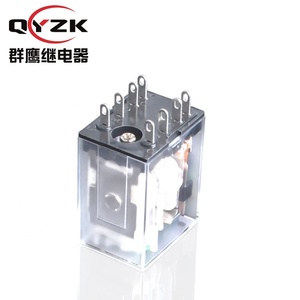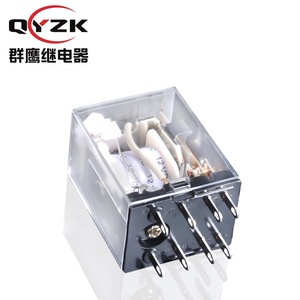Introduction to 8 Pin PCB Relay
The 8 pin PCB relay is an essential component widely used in electronic circuits for its reliability and versatility. This electromechanical device allows for the control of a larger load through a smaller control signal, making it invaluable in various applications, from automotive systems to industrial automation. With its compact design and robust construction, the 8 pin PCB relay plays a crucial role in modern electronic systems, ensuring effective operation while maintaining energy efficiency.
Types of 8 Pin PCB Relays
- Electromechanical Relays: Traditional relays that utilize electromagnetism to actuate switches. These are reliable and can handle a variety of voltages and currents.
- Solid State Relays: These eliminate moving parts, providing faster switching and longer lifespans, making them suitable for applications requiring high-speed operations.
- Time Delay Relays: These relays introduce a delay in the circuit activation, perfect for applications where timing is crucial.
- Relay with Onboard Diode: These relays include a flyback diode to protect the circuit from voltage spikes, enhancing durability and performance.
Applications of 8 Pin PCB Relays
The 8 pin PCB relay finds its utility across varied sectors, showcasing its adaptability. Here are some common applications:
- Automotive Systems: Used in controlling various components like lights, motors, and air conditioning systems.
- Industrial Automation: Employed in factory settings for automation tasks, machinery control, and process management.
- Home Appliances: Utilized in devices such as refrigerators, washing machines, and HVAC systems for efficient operation.
- Telecommunication Equipment: Facilitates signal routing and control in telecom applications, maintaining communication integrity.
Features and Advantages of 8 Pin PCB Relays
The 8 pin PCB relay is designed with various features that enhance its performance and reliability:
- Compact Size: The 8 pin design allows for a space-saving solution without compromising functionality.
- High Switching Capacity: Capable of handling significant load currents, making it suitable for demanding applications.
- Low Power Consumption: Consumes minimal energy while operating, contributing to energy efficiency in automated systems.
- Fast Switching Time: Quick actuation reduces system response times, improving overall performance.
- Durability: Designed to withstand harsh conditions, these relays offer long service life and reliability even in challenging environments.
How to Choose the Right 8 Pin PCB Relay
Selecting the appropriate 8 pin PCB relay for your needs involves considering several critical factors:
- Load Requirements: Assess the voltage and current needs of your application to ensure compatibility.
- Coil Voltage: Ensure the relay's coil voltage matches your control circuit’s voltage supply.
- Relay Type: Depending on your application, choose between electromechanical and solid-state relays based on required speed and load characteristics.
- Size Constraints: Ensure the relay fits within the allocated space on your PCB for convenient integration.
- Environmental Factors: Consider the operating conditions like temperature, humidity, and vibration when selecting a relay to ensure longevity and performance.
















































































































































































































